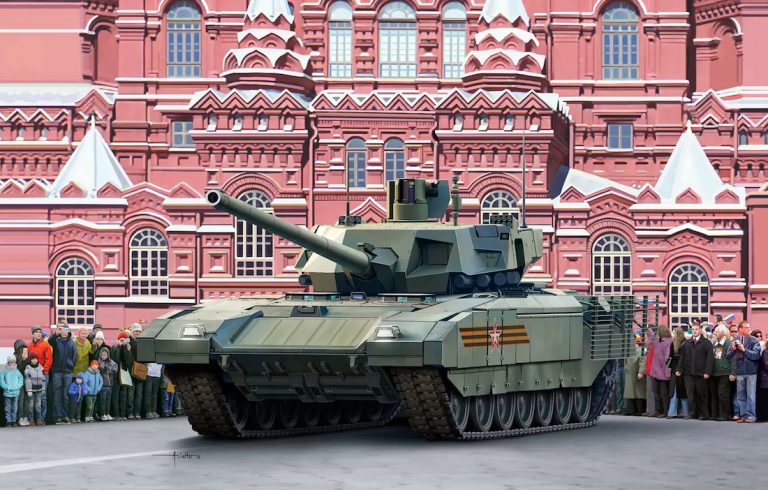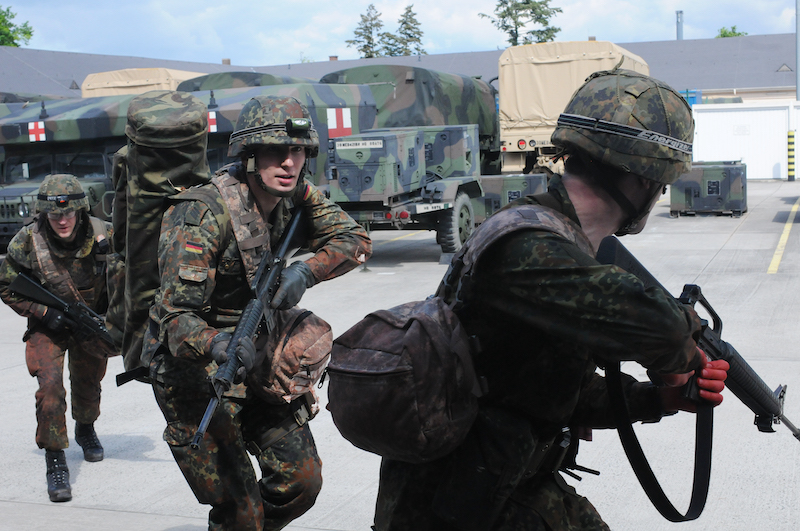
The rising threat of a wider war with Russia, exacerbated by the ongoing conflict in Ukraine and aggressive posturing from Moscow, has prompted several countries to revive or strengthen mandatory military service.
New York, N.Y. As the geopolitical landscape in Europe becomes increasingly volatile, many European nations are reconsidering the role of conscription in their defense strategies. The rising threat of a wider war with Russia, exacerbated by the ongoing conflict in Ukraine and aggressive posturing from Moscow, has prompted several countries to revive or strengthen mandatory military service. This move marks a significant shift in defense policies that had largely moved away from conscription in favor of professional volunteer forces.

The Historical Context of Conscription in Europe
Conscription, or mandatory military service, has deep roots in European history. For much of the 19th and 20th centuries, conscription was a common practice across the continent, driven by the need to maintain large standing armies. However, the end of the Cold War and the perceived reduction in direct military threats led many European countries to phase out or significantly reduce conscription, opting instead for professional volunteer forces that were seen as more efficient and cost-effective.
The Resurgence of Conscription
The resurgence of conscription in Europe is largely a response to the evolving security environment. The annexation of Crimea by Russia in 2014, followed by its support for separatist movements in eastern Ukraine, alarmed many European countries. The full-scale invasion of Ukraine in 2022 further underscored the threat posed by Russia and highlighted the need for robust defense capabilities.

Sweden and Finland: Reinstating Conscription
Sweden and Finland, both non-NATO members at the time of the initial Ukraine crisis, were among the first to reinstate conscription. Sweden reintroduced conscription in 2017, citing the deteriorating security situation in the Baltic region. Finland, which had maintained a conscription system but with reduced service periods, also began to strengthen its defense posture. The subsequent NATO membership of these countries has further solidified their commitment to a strong defense strategy, with conscription playing a crucial role.
Baltic States: Reinforcing Military Readiness
The Baltic states of Estonia, Latvia, and Lithuania have been particularly proactive in maintaining and enhancing their conscription systems. Given their geographic proximity to Russia and historical experiences of Soviet occupation, these countries have always viewed a robust military capability as essential to their sovereignty. Estonia, for example, has one of the highest rates of military participation per capita in Europe, with a well-established conscription system complemented by a strong reserve force.
Germany: A Landmark Policy Shift
Germany’s decision to debate the reintroduction of conscription represents one of the most significant shifts in European defense policy. Germany ended conscription in 2011, transitioning to a professional army. However, the increasing threat from Russia and growing pressure from NATO allies have sparked discussions about bringing back mandatory service. The German government has initiated a series of studies and public consultations to assess the feasibility and necessity of conscription in the current security context.
Strategic and Social Implications
The reintroduction of conscription carries both strategic and social implications. On the strategic front, conscription can significantly increase the size of a nation’s armed forces, providing a larger pool of trained personnel who can be rapidly mobilized in times of crisis. This is particularly important for smaller countries that might struggle to maintain large professional armies due to budgetary constraints.
Conscription also fosters a sense of national unity and shared responsibility for defense. In countries like Finland and Estonia, mandatory military service is seen as a rite of passage and a key component of national identity. This societal buy-in can enhance the overall resilience and preparedness of the nation.
However, there are also challenges associated with conscription. Modern military operations require highly specialized skills and training, and conscript forces may not always meet these demands as effectively as professional soldiers. Additionally, conscription can be politically contentious, with debates about fairness, social equity, and the impact on young people’s careers and education.
The Future of European Defense
As Europe grapples with the growing threat from Russia, the debate over conscription is likely to intensify. For many countries, a hybrid approach that combines a core of professional soldiers with a robust system of conscription and reserves may offer the most effective solution. This model allows for rapid scaling of military capabilities while maintaining the expertise and readiness of a professional force.
In conclusion, the resurgence of conscription in Europe reflects a broader shift in defense strategies in response to an increasingly uncertain security environment. As the threat of a wider war with Russia looms, European nations are taking bold steps to ensure their defense capabilities are robust and adaptable. The reintroduction of conscription is a testament to the enduring importance of national defense and the willingness of European societies to adapt to new challenges.
Moscow Effect: The Draft Comes to Europe, Preparing for Russia (July 22, 2024)
#EuropeanDefense, #ConscriptionRevival, #MilitaryService, #RussiaThreat, #EuropeanSecurity, #DefenseStrategy, #NATO, #Geopolitics, #BalticSecurity, #MilitaryReadiness
Tags: Europe, Conscription, Military Service, Russia, Ukraine Conflict, NATO, Defense Policy, Security, Baltic States, Geopolitical Tensions, World War III